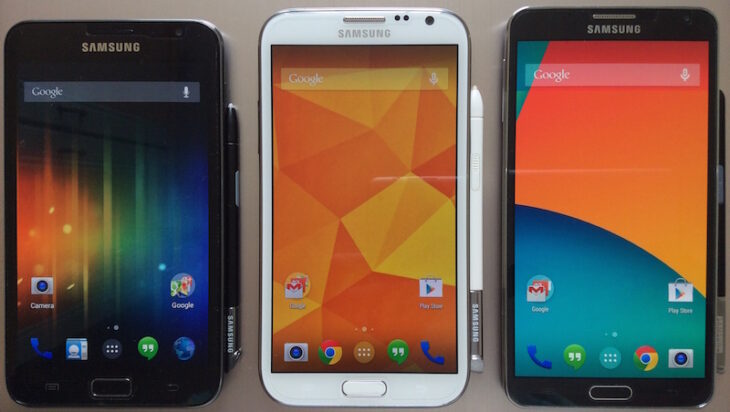Podcast: Play in new window | Embed
In our IFA History Feature, Chris highlighted the VCR:
In 1973 the Internationale Funkausstellung in Berlin, today known as IFA, saw the market introduction of the first home video recording system in the world, the VCR system by Philips and Grundig. Home video recording had been made possible by an invention of Telefunken engineers, helical scan, which allowed the machines to record in very small tracks without cross talk. Telefunken and Teldec, the joint record company of Telefunken and Decca, introduced the first picture disc named TED. The TED disc was read with a pick up needle like a long play audio record.
That’s this week’s IFA Update brought to you by Messe-Berlin. Be sure to visit IFA-Berlin.com.
Listener Karl in Rapid City, South Dakota listens to the podcasts and asked us about syncing Android and iTunes:
I just bought an Android phone. I’d like to be able to use it to sync up to my iTunes library to keep track of play counts and work off my smart playlists. Is there an app for that?
There are several ways to sync your iTunes with your Android device, it’s up to you to decide which method is easiest for you. The first method is manually transferring the files by locating, accessing, and transferring your iTunes downloads from your computer to your phone.
This can be laborious and require plenty of drag-and-drops, but the upside to this is that you can sort through and decide what is most important to transfer so you don’t wipe out all the free space on your phone.
Another method is by using the DoubleTwist or Airsync apps, which allow users with smaller libraries to easily access their iTunes from their Android device. The benefit of using these apps are that it can be done wirelessly using the app on your phone and the companion app on your computer– available for both Mac and Windows-based devices. DoubleTwist is entirely free, but Airsync costs about $4.99 at the moment.
The easiest solution by far is to download Google Play’s companion desktop app to your computer, point it at your iTunes music library, and allow it to upload your music files to the cloud. The music locker they give you free with Google Play will hold 20,000 songs. If your library is bigger than that, you’d have to find another solution.
The downside to Google Play is that your music is in the cloud and you have to stream songs to listen to them. If you find yourself somewhere with no signal, that’s an issue. However, you can download any songs you want available offline to your Android device.
Google Play’s Music Manager will also only sync your playcounts once, when the song is imported, but it will not keep the play count up to date with iTunes after that.
You could also just use iTunes. iSyncr will let you sync iTunes with an Android phone the same way you would with an iPhone, and using it would likely give you access to all of the features you want.
Vince in Albuquerque, New Mexico listens to the podcast and asked us about virus protection on his smartphone:
I have the Samsung Galaxy Note 4 on Verizon. They have an app that comes in the phone called VZ Protect and Verizon recommends getting the app going, and it’s supposed to offer a better protection I guess for the phone if you’re downloading apps. It’s like a virus protection thing. My question is– are they just promoting their own app, are there any apps that are better than that one, that are free? If there are, let me know, or is that one the best one to go with on the phone?
Frankly the app is mostly useless. The whole virus scanner aspect of it is basically worthless unless your phone is rooted, the risk of malware tagging along with your apps is almost non-existent.
They do have some other features and some of them might be more useful, for example, their Site Advisor integration should warn you if you’re visiting potential malware sites (which could be achieved through a DNS server, no need for an app). Their premium features do include a privacy tool that could be useful to know what information each of your apps is trying to access.
The app is pretty much providing a service you don’t need though, most of it is just handled by Android to begin with and having an app running in the background checking everything at all times can’t be fantastic for your battery life.
Speaking of battery life, their app will estimate how long you can talk on the phone, browse the web, or use other functions on however much battery you have left, which sounds nice to know… not very useful, and totally dependent on what you’re doing that very second, but you know… nice… but you can get that for free from plenty of apps like BatteryTime without having to let them run in the background constantly.
There is one useful feature that comes with that app and it’s the ability to track your phone if you lost it, but again, Android can handle that natively too… you just need to log in to Android Device Manager, device tracking should be turned on by default, but you may need to turn on the ability to remotely lock and erase the phone.
If that’s not good enough for you, Samsung phones like yours also come with Find My Mobile to do the same thing… you probably don’t need to install Verizon’s version of the same thing too.


